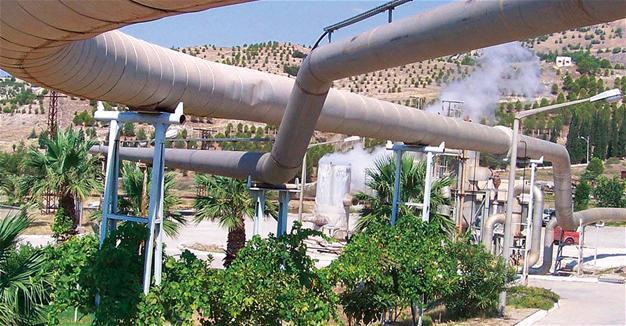Turkey to expand renewable geothermal energy generation with World Bank support
WASHINGTON

The World Bank’s Board of Directors on Nov. 1 approved an IBRD loan of $250 million and a Clean Technology Fund Grant of $39.8 million for the Geothermal Development Project in Turkey, which will help create renewable energy by tapping heat sources deep in the ground, said the organization in a written statement on Nov. 2.
The Geothermal Development Project aims to encourage private sector investment in geothermal energy development in Turkey by reducing risks for investors through a risk sharing mechanism (RSM) and by providing access to long term financing, according to the statement.
Johannes Zutt, World Bank Country Director for Turkey, said the World Bank was pleased to help the Turkish government to expand geothermal capacity in the country.
“Increasing renewable energy generation capacity is critical to achieving energy security and climate change mitigation in Turkey. The renewable energy sector has been growing rapidly in Turkey over the past decades, and geothermal power plants, which use subterranean heat to drive electricity-generating turbines, can provide low-carbon baseload power to drive economic growth and boost prosperity,” said Zutt.
The project includes the establishment of a risk-sharing mechanism for resource validation to support the exploration and test drilling stages, as well as the setting up of a loan facility for resource development that will support the power plant development phase.
The Development Bank of Turkey (TKB) and the Industrial Development Bank of Turkey (TSKB) will be the two financial intermediaries (FI) implementing the project, according to the statement.
These banks will benefit from two IBRD loans ($100 million to TKB and $150 million to TSKB), which will be co-financed with their own resources, it added.
Financing with a long maturity period and capacity building for the participating financial intermediaries is expected to incentivize them to take more risk at earlier development stages than under usual market conditions.
 The World Bank’s Board of Directors on Nov. 1 approved an IBRD loan of $250 million and a Clean Technology Fund Grant of $39.8 million for the Geothermal Development Project in Turkey, which will help create renewable energy by tapping heat sources deep in the ground, said the organization in a written statement on Nov. 2.
The World Bank’s Board of Directors on Nov. 1 approved an IBRD loan of $250 million and a Clean Technology Fund Grant of $39.8 million for the Geothermal Development Project in Turkey, which will help create renewable energy by tapping heat sources deep in the ground, said the organization in a written statement on Nov. 2.